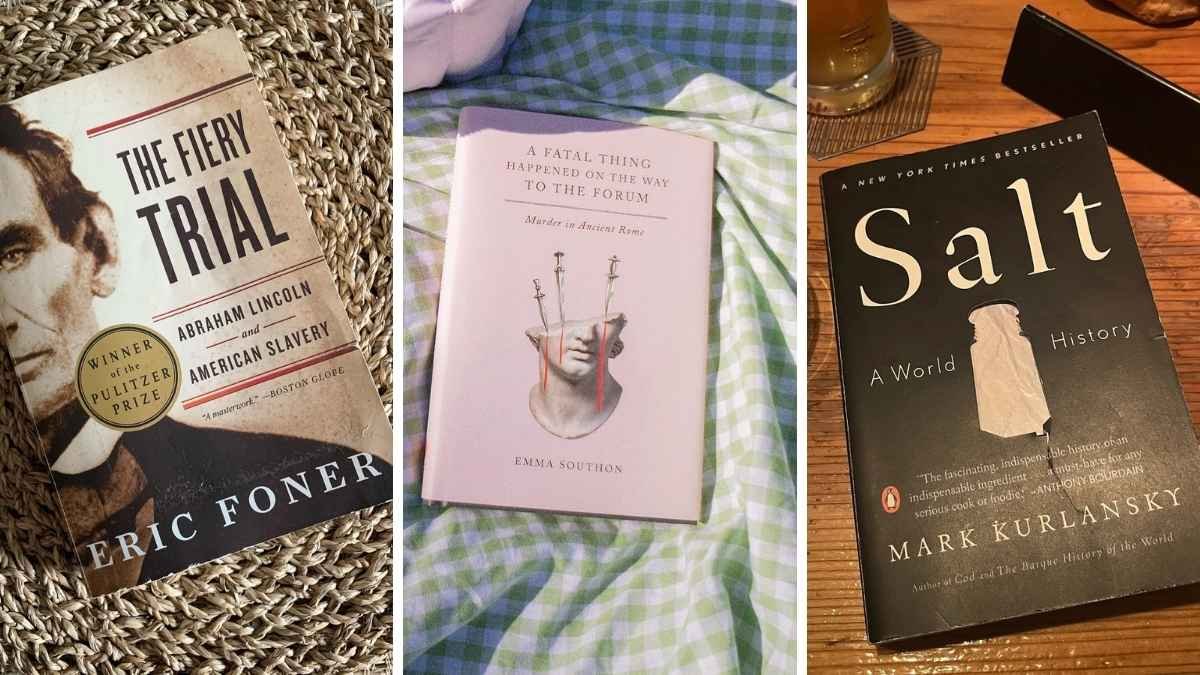
Between work, family, and endless distractions, carving out time to absorb profound wisdom often feels impossible. But what if you could distill decades of human experience into a single weekend?
These 10 concise books deliver timeless lessons that reshape how you think, act, and live—all without requiring a semester-long commitment. Let’s dive into the first five, where brevity meets brilliance.
1. The Autobiography of Benjamin Franklin by Benjamin Franklin

Ben Franklin’s autobiography isn’t just a historical document—it’s a blueprint for self-improvement. Written in his voice, the book chronicles his rise from a poor printer’s apprentice to a polymath, diplomat, and Founding Father. Franklin’s candid reflections on his “13 virtues” (temperance, industry, humility, etc.) reveal how he systematically reformed his character. What makes this book so gripping is its honesty: Franklin admits his flaws (like a youthful obsession with pleasure) and shares the practical strategies he used to overcome them. You’ll find yourself scribbling marginalia as he breaks down complex ideals into actionable habits. For anyone chasing growth, this is less a biography and more a masterclass in intentional living.
Why it resonates: Franklin’s boots-on-the-ground approach to virtue feels refreshingly modern. His mantra? “Energy and persistence conquer all things.”
2. Meditations by Marcus Aurelius

Ever wondered how a Roman emperor kept his cool while ruling during chaos? Marcus Aurelius’s Meditations is his journal, packed with Stoic wisdom for navigating adversity. His advice? Focus on what you can control (your reactions) and let go of the rest. Lines like “You have power over your mind, not outside events” aren’t just ancient platitudes; they’re a survival guide for modern stress. The brevity of each entry makes it perfect for dipping into during coffee breaks.
Why it sticks: Aurelius writes like a mentor, not a lecturer. His resolve to “live in the present” feels like a punch in the gut—and a necessary one.
3. The Art of War by Sun Tzu

This 2,500-year-old text isn’t just for generals. Sun Tzu’s principles—“Victory goes to the one who acts decisively” or “The supreme art of war is to subdue the enemy without fighting”—apply to boardrooms, relationships, and personal goals. The book’s brilliance lies in its paradoxes: sometimes retreat is smarter than attack, and knowing your weaknesses can be your greatest strength. It’s like a cheat code for outthinking obstacles.
Why it’s timeless: Sun Tzu’s focus on adaptability (“Water shapes its course according to the nature of the ground over which it flows”) teaches us to bend, not break, under pressure.
4. The Little Prince by Antoine de Saint-Exupéry

On the surface, The Little Prince seems like a child’s story: a pilot crashes in the Sahara and meets a prince who’s traveled from a tiny asteroid. But beneath its whimsy lies a searing critique of grown-up superficiality. The fox’s lesson—“You become responsible, forever, for what you’ve tamed”—is a gut-punch reminder to value relationships over materialism. Saint-Exupéry’s prose is so simple it hides its depth, much like the prince’s observation: “Grown-ups love numbers.”
Why it lingers: The book’s melancholy beauty forces you to reconcile innocence with reality—a conversation we all need.
5. The Tao Te Ching by Lao Tzu

This 400-line poem is the ultimate “less is more” text. Lao Tzu’s philosophy centers on wu wei (“non-action”), the idea that forcing solutions often backfires; instead, align with life’s natural rhythms. Think of it as a manual for effortless productivity. Key lines like “A journey of a thousand miles begins with a single step” or “Fill your bowl to the brim and it will spill” challenge us to embrace patience and simplicity.
Why it’s essential: In a world obsessed with hustle, the Tao Te Ching is a quiet revolution. It whispers: slow down, let go, and trust the process.
6. The Prince by Niccolò Machiavelli

Machiavelli’s Renaissance classic is a masterclass in leadership and power. Written as advice to rulers, it reveals unflinching truths about human nature and governance. “It is better to be feared than loved,” Machiavelli argues, though he balances this with warnings against becoming despised. The book’s enduring relevance lies in its examination of how leaders navigate complex social landscapes. Whether you’re managing a team or analyzing political dramas, Machiavelli’s insights into ambition and strategy will sharpen your understanding of influence.
Why it matters: His pragmatic approach to decision-making—weighing consequences over ideals—offers a realistic lens for navigating life’s gray areas.
7. Letters from a Stoic by Seneca

Seneca’s letters are like candid conversations with a wise mentor. As Rome’s philosopher-statesman, he advises on managing anxiety, embracing mortality, and finding contentment. “We suffer more often in imagination than in reality,” he writes, urging readers to focus on the present. The letters are peppered with actionable wisdom, such as practicing voluntary discomfort to build resilience. Seneca’s blend of philosophy and pragmatism makes this collection a soothing yet thought-provoking read.
Why it endures: His down-to-earth guidance on handling loss and uncertainty feels as necessary today as it did in ancient times.
8. The Analects of Confucius by Confucius

Compiled from conversations with Confucius and his disciples, this text is a blueprint for ethical living. Confucius emphasizes ren (benevolence) and li (ritual propriety) as foundations for personal and societal well-being. His teachings on respect for elders, self-cultivation, and public service offer a balanced approach to navigating relationships. While rooted in ancient China, his advice, such as “Do not impose on others what you do not desire,” resonates universally.
Why it’s profound: Confucius frames morality not as rigid rules, but as habits that foster connection and purpose.
9. The Essential Rumi by Jalal ad-Din Rumi

Rumi’s poetry transcends time and culture, offering glimpses into the human soul’s yearning for connection. His verses explore love, loss, and the search for meaning with raw emotion. “You are not a drop in the ocean. You are the entire ocean in a drop,” he writes, merging mysticism with everyday wisdom. The Essential Rumi distills his vast work into accessible selections that feel like meditations on the heart’s deepest questions.
Why it captivates: Rumi’s ability to frame spiritual truths in relatable metaphors makes his poems both intimate and expansive.
10. The Art of Happiness by Dalai Lama and Howard C. Cutler

This dialogue between the Dalai Lama and a psychiatrist blends Eastern philosophy with Western psychology. The Dalai Lama argues that happiness is a skill cultivated through mindfulness, empathy, and managing expectations. He addresses modern dilemmas like stress and anger with serene pragmatism: “Happiness is not something ready-made. It comes from your own actions.” The conversational format makes profound concepts approachable.
Why it’s healing: Its focus on training the mind—rather than chasing external success—offers a refreshing counter to today’s hustle culture.







